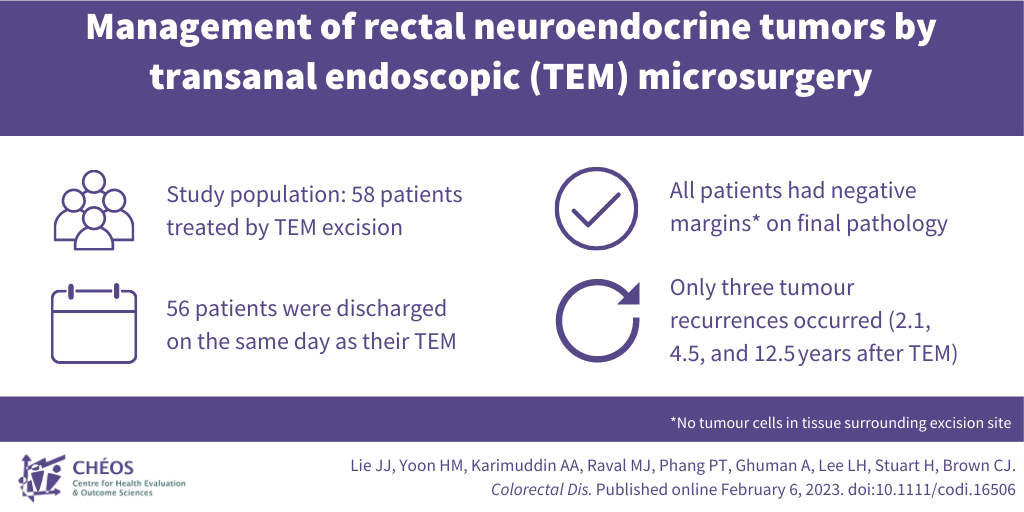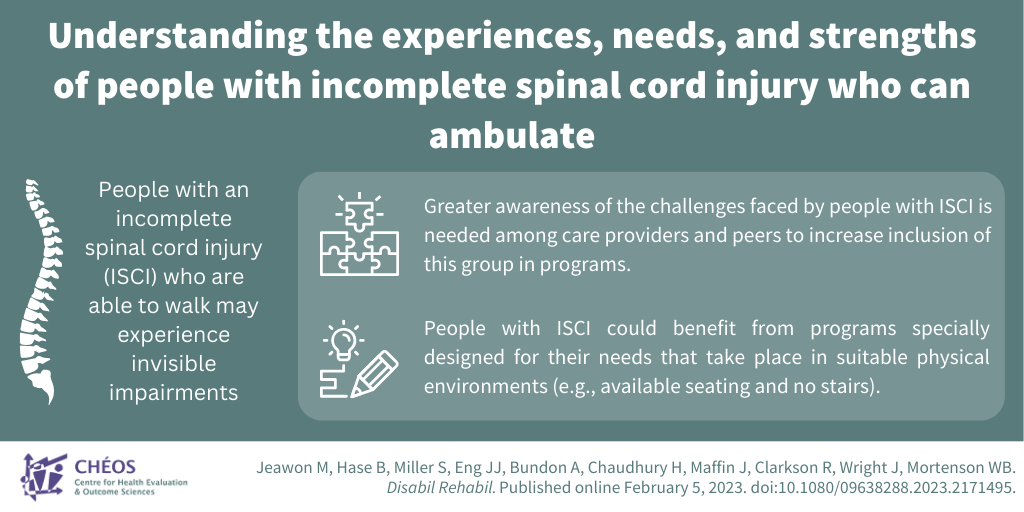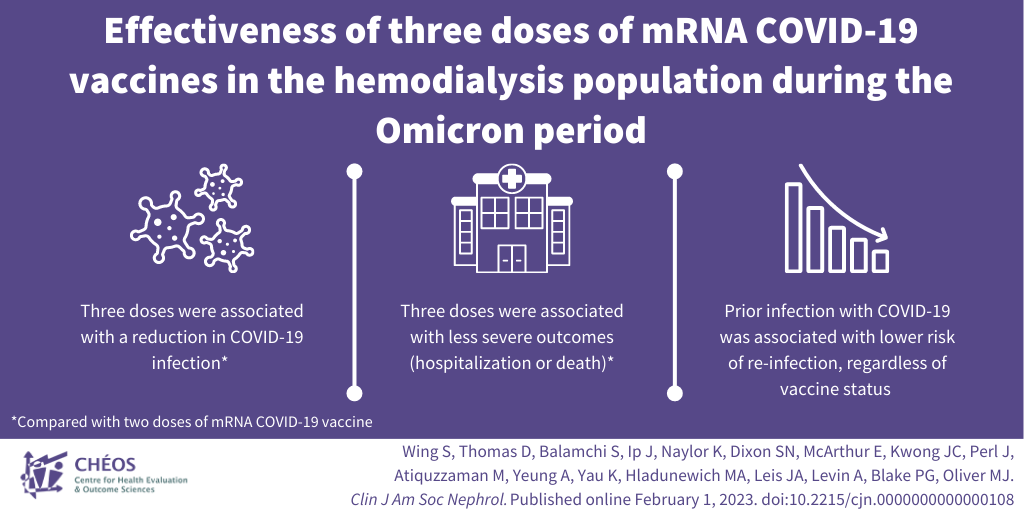The Evidence Speaks Series is a recurring feature highlighting the latest in CHÉOS research. This series features summaries of select publications and is designed to keep media and the research community up to date with CHÉOS’ current research results in the health outcomes field.
To ensure this research is quick and easy to share, we are now providing social cards that you are free to save and use as you see fit.
Transanal endoscopic microsurgery is effective at managing rectal neuroendocrine tumours
Lie JJ, Yoon HM, Karimuddin AA, Raval MJ, Phang PT, Ghuman A, Lee LH, Stuart H, Brown CJ. Management of Rectal Neuroendocrine Tumors by Transanal Endoscopic Microsurgery. Colorectal Dis. Published online February 6, 2023.
CHÉOS’ Drs. Manoj Raval, P Terry Phang, and Carl Brown evaluated how safe and effective transanal endoscopic microsurgery (TEM) was for excision (removal) of rectal neuroendocrine tumours. Reviewing data from 58 patients who underwent either excision of a primary tumour (15), re-excision after prior incomplete removal (38), or excision of locally recurrent tumours (5), the researchers found that all the patients had negative margins on final pathology (no tumour cells detected in the tissue that surrounding the excised site). Only three patients experienced recurrences of rectal neuroendocrine tumours, which were diagnosed 2.1, 4.5, and 12.5 years after TEM excision. This study showed that TEM is an effective method for managing rectal neuroendocrine tumours.

—
More support is needed for incomplete spinal cord injury patients
Jeawon M, Hase B, Miller S, Eng JJ, Bundon A, Chaudhury H, Maffin J, Clarkson R, Wright J, Mortenson WB. Understanding the experiences, needs, and strengths of people with incomplete spinal cord injury who can ambulate. Disabil Rehabil. Published online February 5, 2023.
An incomplete spinal cord injury (ISCI) occurs when the patient retains some feeling and function below the site of injury. Some ISCI patients can expect to be ambulatory within a year, meaning they’ll be able to walk; however, they’ll often live with invisible impairments. CHÉOS Scientist Dr. Habib Chaudhury interviewed 24 ambulatory people with ISCI to understand their experiences, needs, and strengths. While they showed perseverance following their injury, the study highlighted that ambulatory ISCI patients may struggle to get around in some environments (e.g., uneven ground), feel socially isolated (including from activities originally designed for people with complete spinal cord injury), and feel misunderstood due to the invisible nature of their illness. These findings suggest that more support is needed for this population, such as programs organized by service providers and community that take place in suitable physical environments and include activities specific to ISCI needs.

—
Three mRNA vaccine doses associated with reduced COVID-19 infection and lessened severity of COVID-19–related outcomes
Wing S, Thomas D, Balamchi S, Ip J, Naylor K, Dixon SN, McArthur E, Kwong JC, Perl J, Atiquzzaman M, Yeung A, Yau K, Hladunewich MA, Leis JA, Levin A, Blake PG, Oliver MJ. Effectiveness of Three Doses of mRNA COVID-19 Vaccines in the Hemodialysis Population during the Omicron Period. Clin J Am Soc Nephrol. Published online February 1, 2023. doi:10.2215/cjn.0000000000000108
Research has shown that two doses of mRNA COVID-19 vaccines were effective in protecting against the virus among haemodialysis patients when the Alpha and Delta strains were dominant. With Omicron quickly becoming the more dominant strain, CHÉOS’ Dr. Adeera Levin investigated how effective three vaccine doses were against COVID-19 among haemodialysis patients compared to two. Analyzing data from 8,457 people receiving haemodialysis during the Omicron period, the study found that three doses of mRNA vaccine were associated with a reduction of COVID-19 infection and less severe COVID-19–related outcomes, including hospitalization and death, among haemodialysis patients compared with two doses. In addition, prior infection with COVID-19 was associated with a lower risk of re-infection, regardless of vaccine status.




